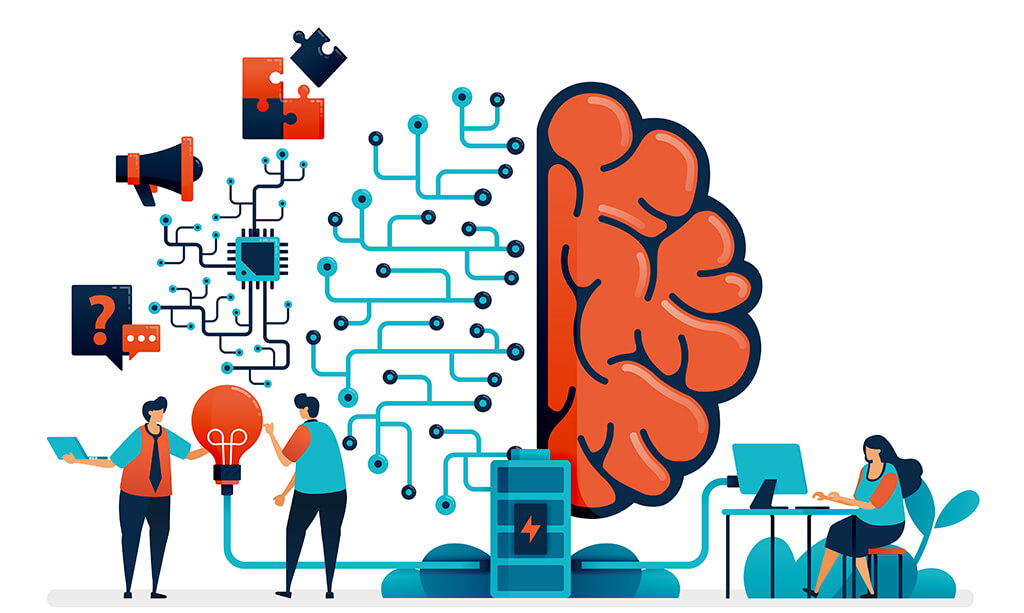
The main goals of this ESL lesson plan are to:
- – Build AI vocabulary and technology idioms like “pull the plug” and “go over one’s head” while exploring artificial intelligence concepts through Turing test videos in this advanced esl lessons.
- – Make future predictions using “will” and “be going to” plus certainty expressions like “probably” and “guaranteed” when discussing technological advances for adult english lessons.
- – Engage in meaningful conversations about intelligence quotes and AI scenarios while practicing prediction language through card-based activities using these english teaching materials.
In this Advanced ESL lesson, the student will learn about artificial intelligence. They will learn and practice making predictions about the future in relation to technological advances, and express the probability of these events occurring. They will also learn some common idioms related to intelligence and technology.
Warm-up
The lesson starts with a few basic questions about intelligence and artificial intelligence.
Video: Can a computer talk like a human?
Before watching the video, the student gets familiar with the vocabulary which will be mentioned in the video. They match the words and phrases with their meanings (e.g. script, baffled, dead giveaway, jump the gun, etc.). Then, the student proceeds to watch the video The Turing test and learns about Alan Turing and one of the first computers. They answer video comprehension questions after watching.
In a vocabulary review, the student completes and rephrases the sentences using the words from the video.
Idioms: technology and intelligence
In this part of the lesson, the student learns some technology and intelligence related idioms used in everyday communication (e.g. pull the plug, to have a screw loose, to go over one’s head, a cog in the machine, etc.). They match them to the correct meanings, use them to complete sentences, and then match them to situations in which it would be appropriate to use these idioms. Finally, they practice using these idioms in conversation.
Grammar: making predictions
The student reviews how to make predictions using will and be going to, especially predictions about the future of technology and artificial intelligence. Furthermore, they learn signal words to mark the certainty of predictions (probably, a good chance, be guaranteed, etc.) and sort them out. They practice using these signal words by correcting the mistakes and rephrasing sentences.
Discussion
The student picks a card with a few signal phrases and the event they need to predict. In the final exercise, they explain the meaning behind quotes about intelligence.

Smile, You’re on Camera: Are We Being Watched?
This lesson explores government surveillance of citizens through vocabulary exercises and discussion activities…

Raising a Robot
The main goals of this ESL lesson plan are:
– To…
Beyond the Hype: Real Limitations of Today’s AI
The main goals of this ESL lesson plan are for students…


